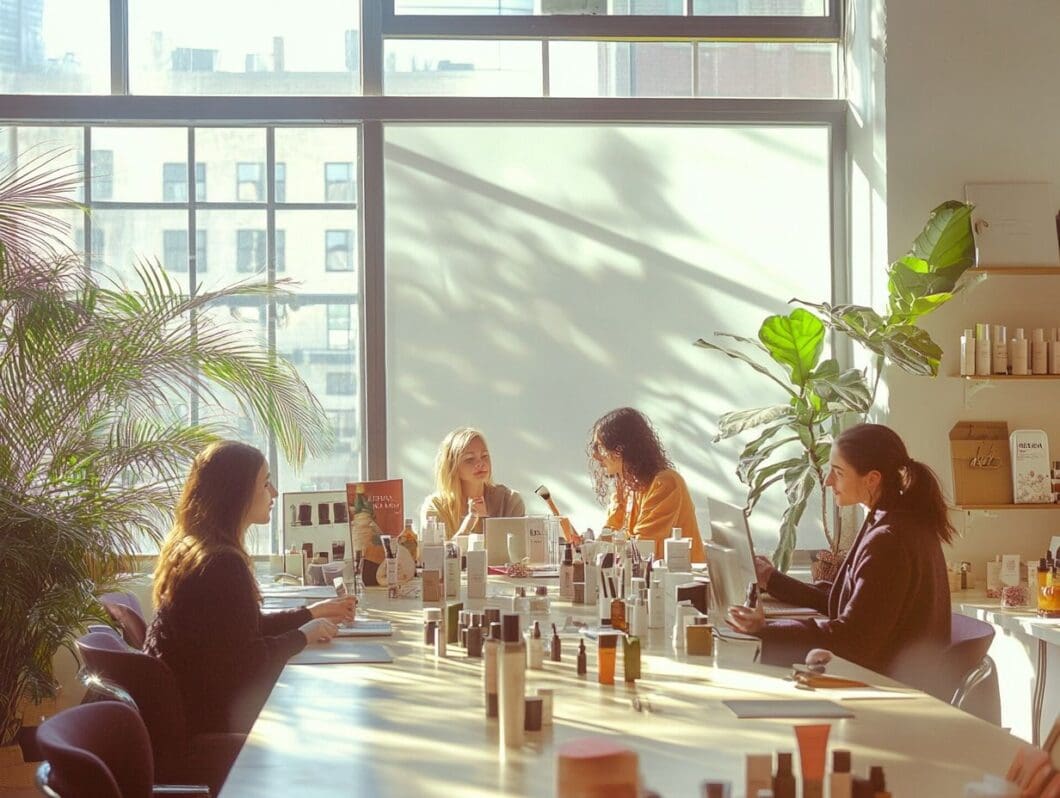The beauty industry is undergoing a transformation, fueled by innovative startups that are redefining the landscape.
From groundbreaking products to unique services, these companies are not just following trends—they’re setting them. As consumer preferences shift and technology advances, opportunities for new players abound, along with challenges of competition and regulation.
This article explores the most exciting beauty startups, what drives their success, the obstacles they face, and essential tips for aspiring entrepreneurs in this dynamic field.
Key Takeaways:
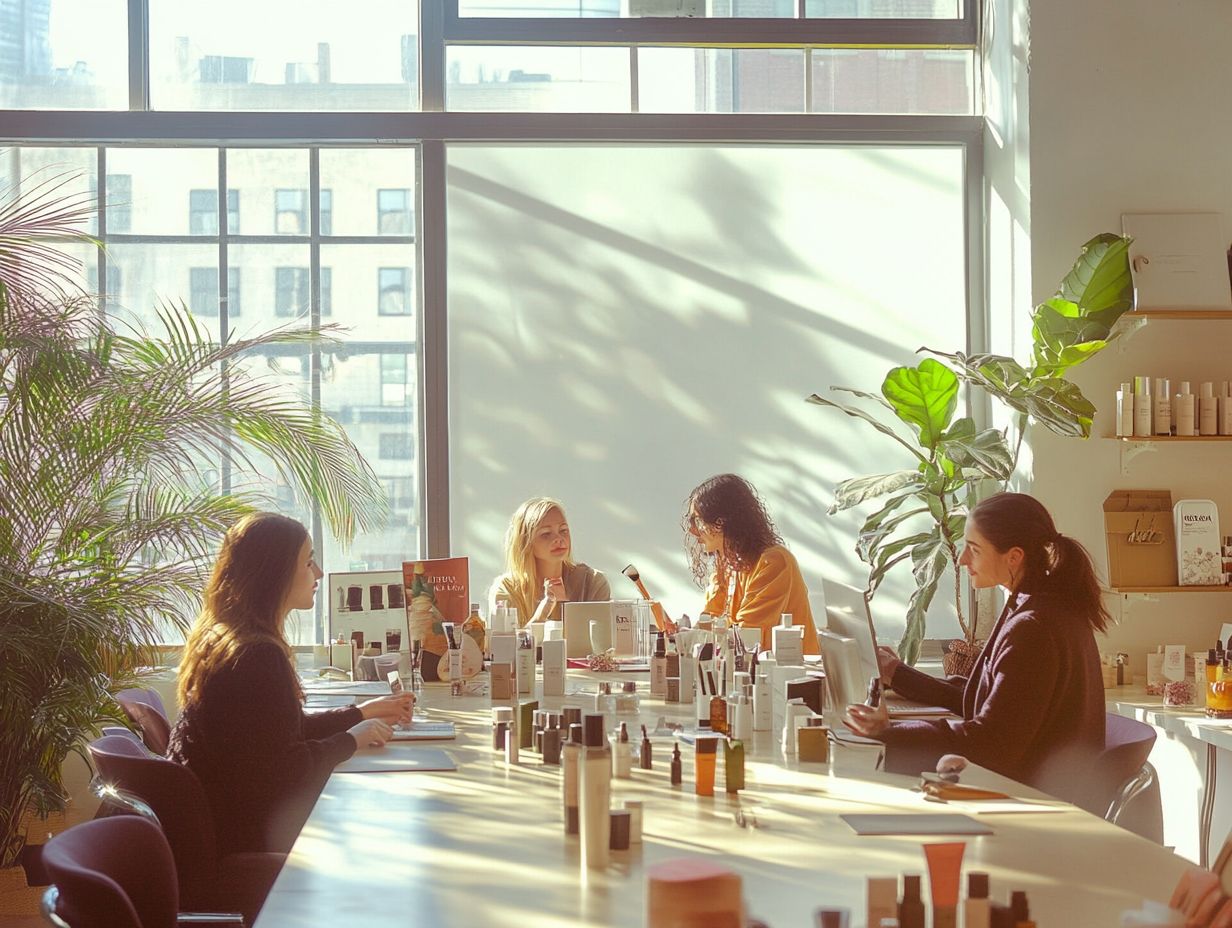
What are Beauty Startups?
Beauty startups represent a dynamic segment of the beauty industry, focusing on innovative solutions that address the evolving needs of consumers.
By leveraging cutting-edge technology and consumer insights, these startups are not only redefining product development but also responding to an increasing demand for authenticity and inclusivity among diverse demographics.
With a growing emphasis on cruelty-free practices and environmental sustainability, brands such as Glossier and Fenty Beauty have established a precedent that influences consumer choices and encourages other companies to adopt ethical production methods.
As market trends increasingly lean toward personalized skincare, driven by advancements in artificial intelligence and data analytics, these startups are strategically positioned to meet individualized consumer preferences, thereby solidifying their impact on the beauty landscape in the years to come.
Innovative Beauty Startups to Watch
As the beauty industry continues to evolve, a multitude of innovative startups are emerging, garnering attention for their unique ideas and approaches. With 2024 approaching, these startups are not only concentrating on distinctive product offerings but also shaping new trends in wellness and personal care.
By prioritizing sustainable beauty and clean makeup, they are redefining consumer expectations, resulting in significant funding rounds that indicate a promising future for the industry.
Revolutionary Products and Services
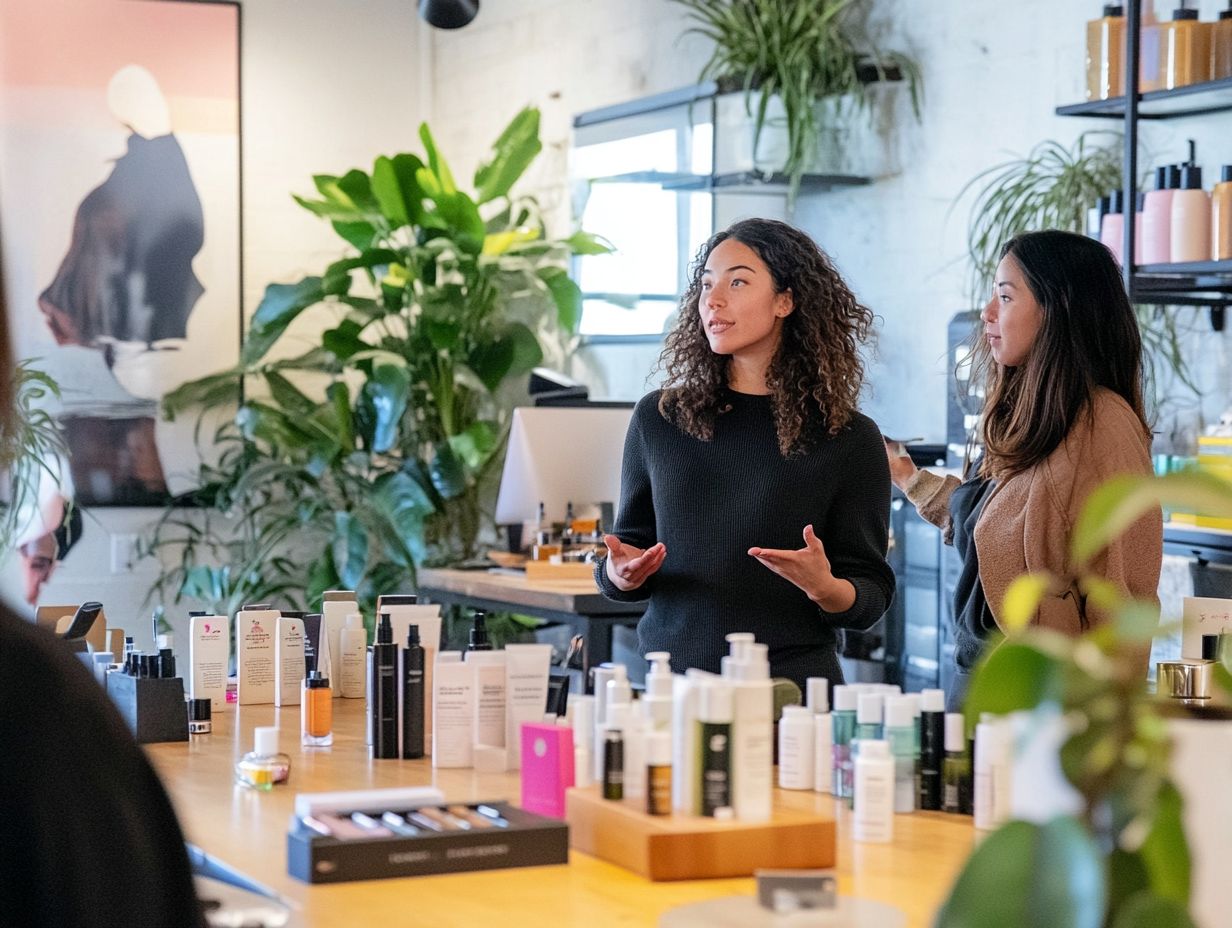
Revolutionary products and services in the beauty sector are significantly transforming consumer experiences through personalized skincare solutions and clean makeup options. These advancements emphasize the utilization of natural ingredients and innovative technology to develop effective beauty brands that resonate with today’s health-conscious consumers. Startups such as Prose, which specializes in customized hair care, and MERIT Beauty, recognized for its minimalist approach to cosmetics, exemplify the industry’s shift towards sustainability and individualized care.
These companies not only address the demand for unique formulations tailored to individual needs but also prioritize eco-friendly practices and ethically sourced materials. For instance, Ogee offers organic skincare that emphasizes both luxury and environmentally conscious production methods, while companies such as Ecover and BeautyCounter advocate for cleaner environments through their sustainable packaging initiatives.
By leveraging user data and feedback, these innovative brands can dynamically adjust their offerings, ultimately creating a beauty landscape that enables consumers to embrace their personal style without compromising their values.
Factors Driving the Success of Beauty Startups
The success of beauty startups is significantly influenced by various factors that reflect the evolving landscape of the beauty industry. Key drivers include shifting consumer preferences that prioritize sustainability and natural ingredients, along with technological advancements that enable personalized experiences.
Startups are capitalizing on these trends to introduce innovative products that appeal to health-conscious consumers, thereby fostering their growth in an increasingly competitive market.
Changing Consumer Preferences
Changing consumer preferences are profoundly shaping the landscape of beauty startups, marked by a significant shift towards wellness and sustainability. Contemporary consumers seek products that not only enhance their appearance but also align with their values, such as the use of natural ingredients and cruelty-free practices. This trend is exemplified by the emergence of wellness startups that focus on holistic personal care, effectively merging beauty with well-being to cater to an increasingly discerning market.
For instance, brands such as Herbivore Botanicals and Tata Harper are at the forefront, providing formulations rich in botanicals and free from harmful chemicals. These innovators place a strong emphasis on eco-friendly packaging and sustainable sourcing, appealing to a health-conscious demographic keen on making responsible choices.
The rising popularity of clean beauty parallels a surge in consumer awareness regarding mental health, leading companies to incorporate self-care rituals into their product offerings. As consumers continue to prioritize products with minimal environmental impact and substantial wellness benefits, the beauty market must adapt, embracing these values to maintain relevance and achieve success.
Technological Advancements
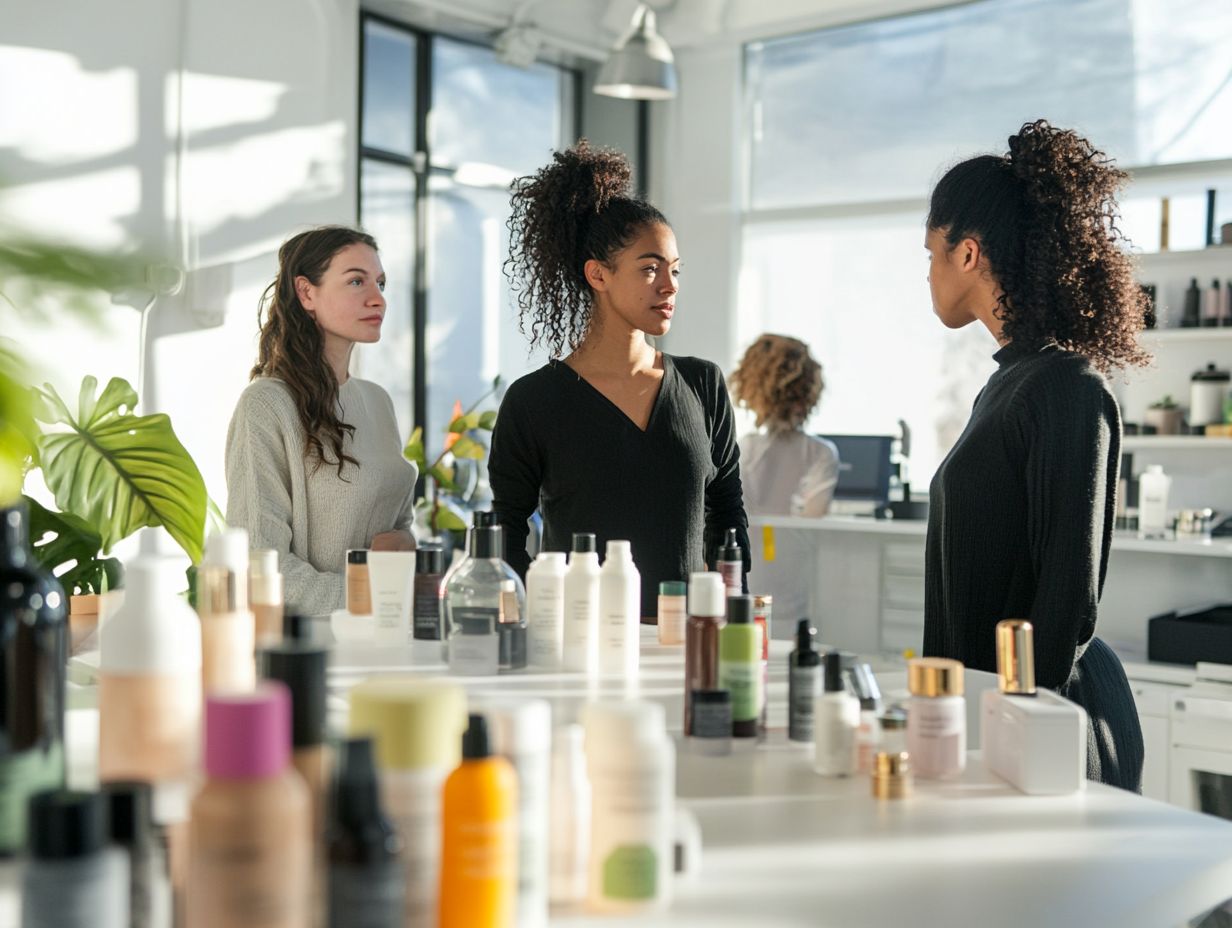
Technological advancements are essential to the growth and innovation of beauty startups, enableing them to provide personalized skincare solutions that address individual needs. Innovations such as AI-driven skin analysis and augmented reality try-ons enable brands to enhance customer experiences while optimizing their product offerings. These technological developments not only streamline operational processes but also assist startups in establishing a distinct presence in the highly competitive beauty industry.
Cutting-edge tools, including machine learning algorithms, analyze extensive datasets to predict trends and tailor recommendations. Brands such as Glossier and Function of Beauty are adopting these technologies, allowing consumers to input their preferences and receive customized formulations.
Furthermore, leveraging social media analytics enables a deeper understanding of customer sentiments and engagement patterns, which facilitates the execution of targeted marketing campaigns. By embracing these advancements, beauty startups not only improve product customization but also cultivate lasting relationships with consumers, fostering loyalty and trust in a continuously evolving market.
Challenges Faced by Beauty Startups
Beauty startups encounter a myriad of challenges while navigating an increasingly competitive and saturated market. Significant obstacles include intense competition from established beauty brands and the necessity to adhere to regulatory requirements governing product safety and labeling.
As these startups endeavor to establish their unique position, comprehending these challenges is essential for their long-term success and sustainability.
Competition and Market Saturation
The beauty industry is marked by intense competition and significant market saturation, posing considerable challenges for new beauty startups seeking to establish visibility and capture market share. As numerous innovative startups emerge, differentiation becomes crucial; those that successfully innovate and connect with consumers through distinctive branding and product offerings are most likely to succeed in this complex environment.
To navigate these challenges, many startups are employing digital marketing strategies, forming influencer partnerships, and establishing a robust online presence to carve out a niche for themselves. For instance, independent brands frequently emphasize sustainability or inclusivity in their messaging, positioning these values as central to their identity.
By adopting unique selling propositions and tailoring their outreach to specific target audiences, these startups can effectively engage consumers within a crowded marketplace. Utilizing social media platforms proficiently enables these startups to cultivate loyal communities, ultimately enhancing brand recognition and promoting long-term success in an increasingly competitive landscape.
Regulatory Hurdles
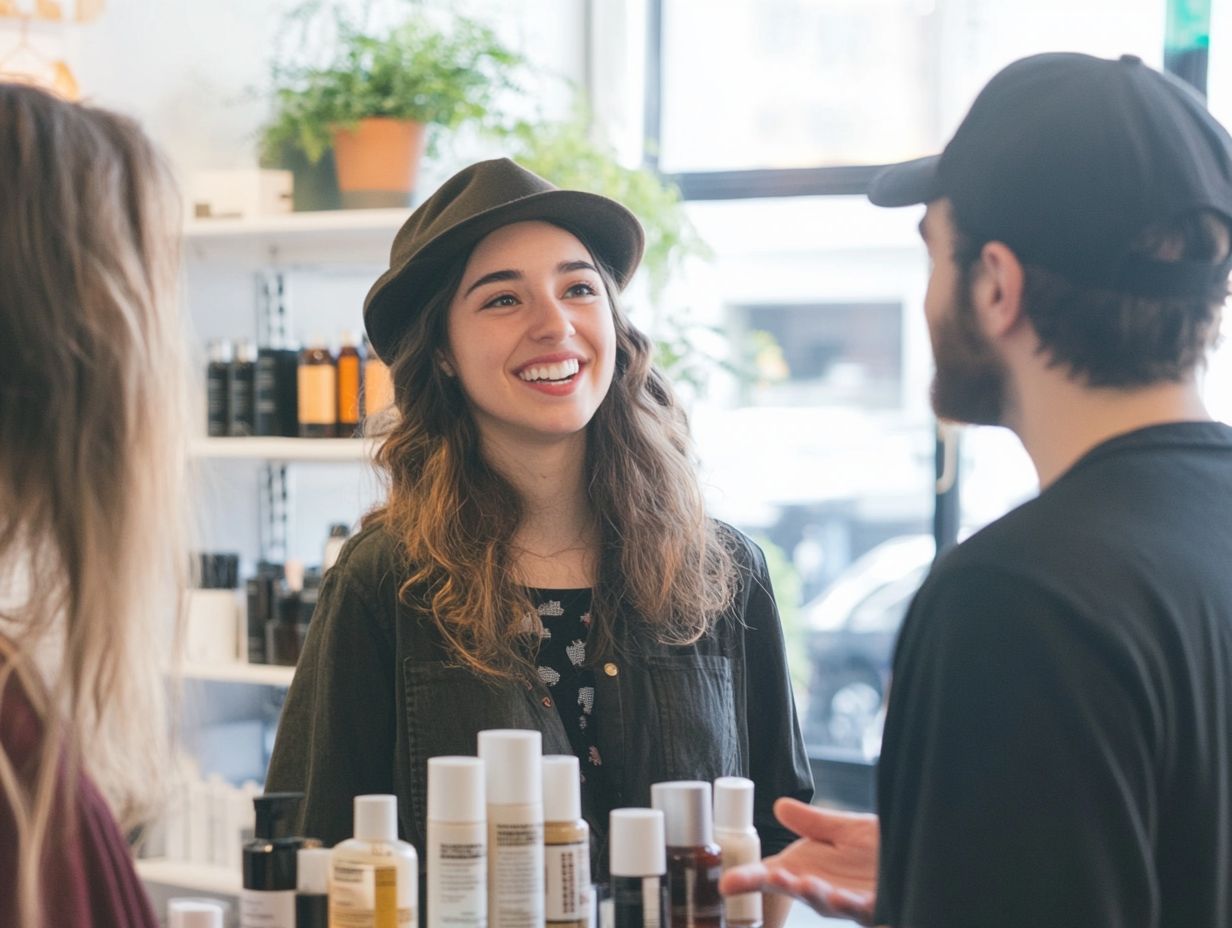
Regulatory hurdles present significant challenges for beauty startups, necessitating navigation through the complex landscape of safety regulations and compliance standards for cosmetic products. A thorough understanding of these regulations is essential for startups to ensure that their products meet legal requirements while also appealing to safety-conscious consumers in the beauty industry.
Compliance influences not only the formulation and ingredients of beauty products but also dictates how these entrepreneurs can market and label them. Startups frequently grapple with industry-specific regulations established by government bodies such as the FDA and CPSC, which are designed to protect consumers from harmful substances.
As these companies strive to introduce innovative products to the market, they must remain vigilant regarding evolving regulations that can affect everything from product testing to packaging. Therefore, the ability to adapt to these regulatory challenges is crucial for success and can significantly influence the trajectory of a beauty startup in a competitive market.
Tips for Starting a Beauty Startup
Launching a beauty startup necessitates meticulous planning and execution, along with several key strategies to ensure success in this competitive landscape.
Entrepreneurs should prioritize identifying unique value propositions, comprehending market trends, and leveraging innovative technologies to establish compelling beauty brands.
Moreover, implementing effective branding and marketing strategies is crucial for engaging consumers and fostering market growth.
Key Considerations and Strategies
When launching a beauty startup, various key considerations and strategies can significantly impact the likelihood of success, particularly in securing funding rounds and attracting consumer interest. It is imperative for entrepreneurs to develop a robust business plan, identify potential investors, and prioritize innovation to distinguish their brand in a competitive market.
Thorough market research is essential to comprehend consumer trends and preferences, which will guide product development and branding initiatives. Establishing a compelling brand narrative that resonates with the target audience can enhance emotional connections, ultimately fostering loyalty and driving sales.
Collaboration with influencers and effective utilization of social media channels are also critical for gaining visibility and credibility. Entrepreneurs must recognize the importance of sustainability, as eco-conscious consumers increasingly prefer brands that adopt ethical practices.
By integrating these elements with a strategic marketing initiative, the potential for growth within the beauty industry can be significantly enhanced.


